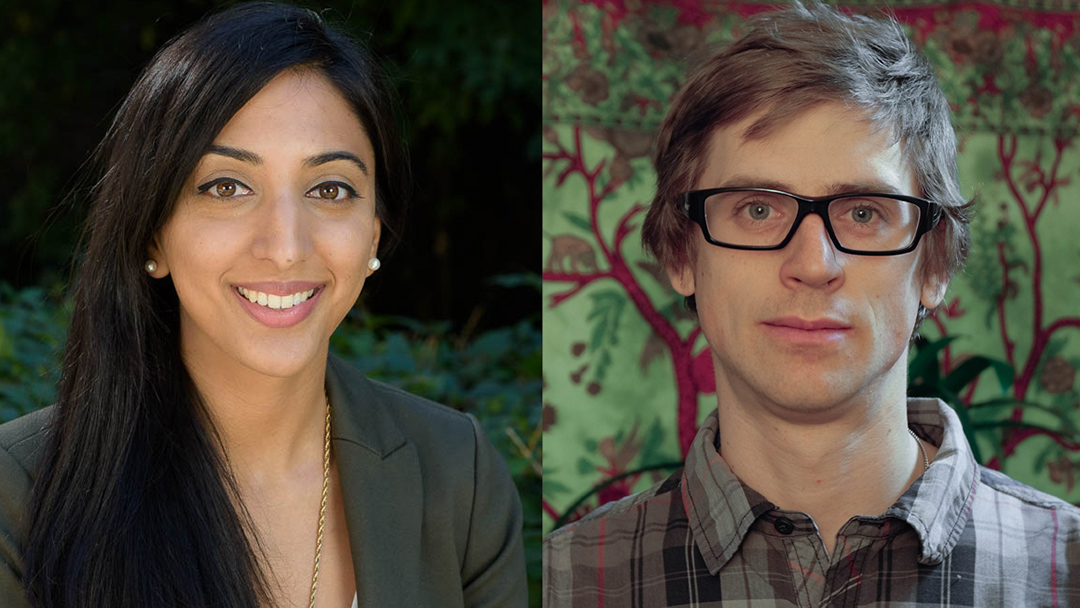
Researchers awarded prestigious national fellowships for climate change-related projects
Two exceptional young University of Saskatchewan (USask) researchers have been awarded highly competitive Banting Postdoctoral Fellowships totalling $280,000 over two years for projects that focus on aspects of climate change.
This year’s recipients are health policy researcher Jasmin Bhawra, who will study the long-term effects of climate change on mental health and on food access and availability, and geological sciences researcher Elliott Skierszkan, who will improve water security for Canadian Arctic communities.
“We are very proud that these two talented scholars who aspire to become research leaders of tomorrow will work on these important projects at USask,” said USask Vice-President of Research Karen Chad. “This research will help improve Indigenous Peoples’ health and provide vital knowledge for water planning that will help mitigate the effects of a warming climate.”
The Banting Fellowship is awarded to post-doctoral researchers, both nationally and internationally, who work on projects that will contribute to Canada's economic and social growth.
Elliott Skierszkan
Improving water security in the Canadian North
In areas of Yukon, high uranium concentrations in water sources occur frequently because of a natural release of the metal from rocks. Excessive exposure to this chemical is known to be harmful to fish and human kidneys. Skierszkan will study how warming temperatures in northern Canada will influence uranium release from rocks and sediments into water sources.
“Our research draws attention to the need to monitor water quality even in areas with no direct impact from industrial activities,” said Skierszkan. “Our research will also help identify areas of concern for groundwater management.”
In subarctic and arctic regions, climate change and thawing permafrost—ground that remains frozen throughout the year—are causing important shifts in groundwater chemistry and flow, but it is unclear how these changes will affect the natural release of uranium from rocks and sediments.
“Understanding how thawing permafrost affects water quality, including the release of naturally occurring uranium, will allow us to better predict future impacts on water security in northern regions,” said USask geological sciences professor Matt Lindsay, who will work with Skierszkan on his project.
Using the Canadian Light Source synchrotron at USask, Skierszkan will try to better understand uranium chemistry in groundwater systems.
“We hope to work with Indigenous communities in the North to focus on areas where there are existing concerns over water quality,” he said.
Skierszkan was attracted to USask because of the opportunity to collaborate with Lindsay, an expert in groundwater geochemistry, and the excellence of the USask Global Institute for Water Security and the Global Water Futures program. This project aims to deliver risk management solutions for Canada and other cold regions where global warming is changing landscapes. USask ranks first in Canada for water resources research.
“The Banting fellowship creates lots of opportunities to lead research that has the potential to improve peoples’ lives by focusing on access to clean water,” he said.
As a Type 1 insulin-dependent diabetic, Skierszkan is also proud to do research under the Banting fellowship program, which is named after the co-discoverer of insulin Frederick Banting.
